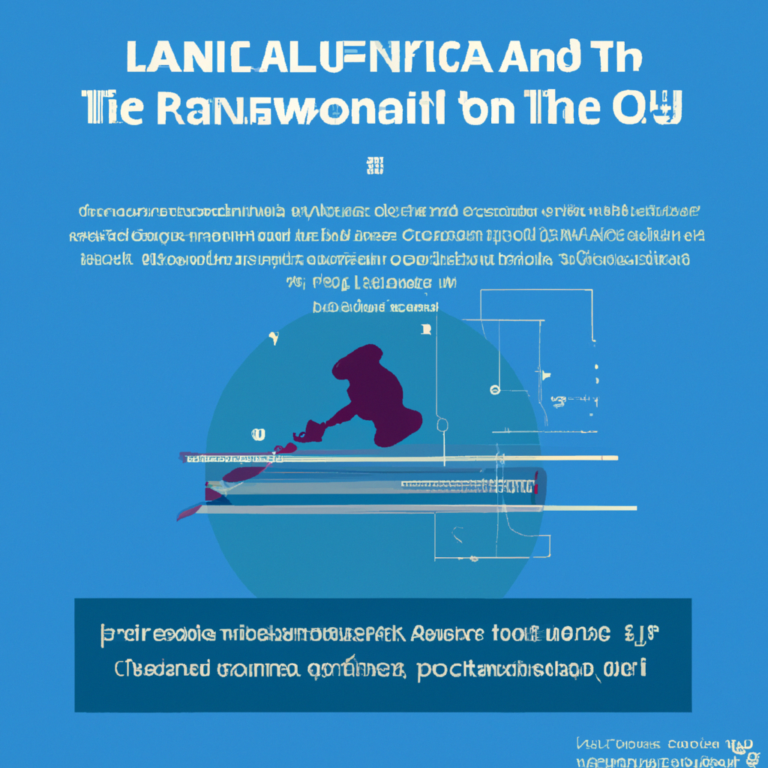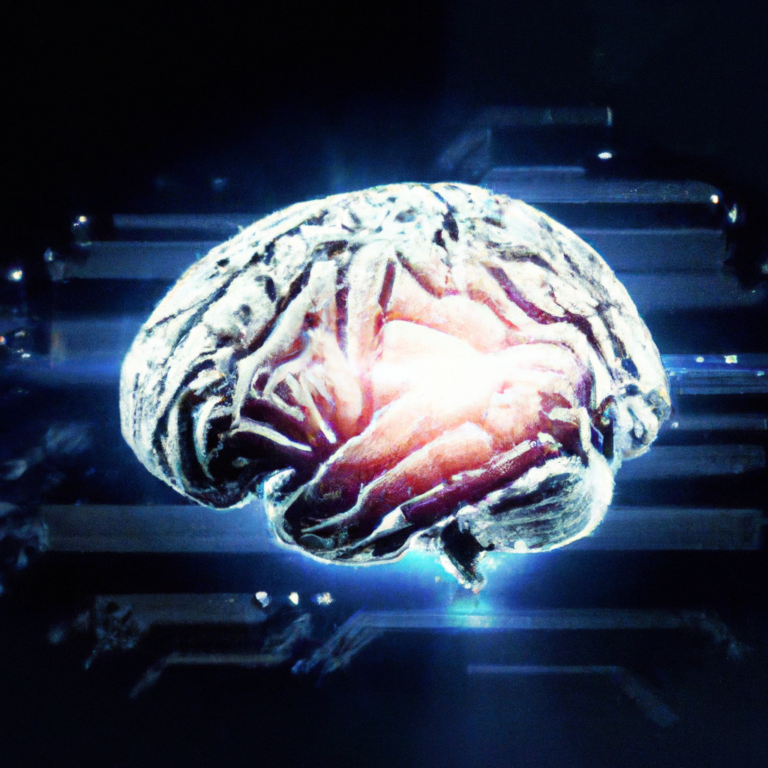The Ethical Challenges Of Using AI For Warfare

Imagine a future where warfare is carried out by autonomous machines, guided by artificial intelligence (AI). It sounds like something out of a science fiction novel, but the reality is that AI is increasingly being used in military applications. While the potential of AI in warfare is undeniable, it raises a host of ethical challenges. From the question of accountability to the protection of civilians, the intersection of AI and warfare presents a complex dilemma that requires careful deliberation. In this article, we will explore some of the key ethical challenges associated with using AI for warfare and consider the implications for the future of conflict.

1. Automation and Lack of Human Control
1.1 Autonomous Weapons Systems
The development and deployment of autonomous weapons systems pose significant ethical challenges. These systems, often powered by artificial intelligence (AI), can operate without direct human control and make decisions regarding the use of lethal force. While they offer the potential for enhanced battlefield capabilities, the lack of human involvement raises concerns about the ethical implications of delegating life-or-death decisions to machines.
1.2 The Lack of Human Judgment
One of the key concerns associated with autonomous weapons systems is the absence of human judgment. Human decision-making is informed by empathy, moral reasoning, and contextual understanding, which may be lacking in AI-powered systems. The ability to assess the intentions and emotions of adversaries, navigate complex moral dilemmas, and exercise discretion based on situational factors are critical aspects of warfare that machines may not be able to fully comprehend. This raises questions about the appropriateness and reliability of relying solely on automated systems for decision-making in armed conflicts.
1.3 Accountability and Responsibility
Another ethical challenge arises from the issue of accountability and responsibility. Should something go wrong or a significant error occur in the decision-making process of an autonomous weapons system, who can be held responsible? The lack of human oversight and control complicates assigning blame and accountability for the consequences of actions taken by these systems. This raises concerns about the potential evasion of legal and moral responsibility in the event of negative outcomes, including civilian casualties or violations of international law.
2. Implications for International Law
2.1 Compliance with Laws of Armed Conflict
The use of AI in warfare creates new challenges in ensuring compliance with the laws of armed conflict. Autonomous weapons systems must adhere to well-established principles, such as distinction (differentiating between combatants and civilians), proportionality (using only the necessary amount of force), and military necessity (using force to accomplish a legitimate military objective). However, the lack of human judgment and the potential for unforeseen consequences make it difficult to guarantee compliance with these principles.
2.2 Prohibition of Unnecessary Suffering
International humanitarian law prohibits the use of weapons that cause unnecessary suffering or inflict indiscriminate harm. With the advent of AI-powered autonomous weapons, the ability to assess and control the level of suffering inflicted becomes more complex. Without human supervision, the potential exists for these systems to engage in actions that lead to excessive harm, thereby violating the principles of unnecessary suffering.
2.3 Challenges in Distinguishing between Combatants and Civilians
One of the crucial ethical challenges in warfare is distinguishing combatants from civilians. This distinction is essential to uphold the principle of discrimination and minimize civilian casualties. However, the reliance on AI in decision-making introduces the risk of flawed identification and classification of targets. Autonomous weapons systems may struggle to accurately differentiate combatants from non-combatants, leading to an increased likelihood of civilian casualties and potential violations of the laws of armed conflict.
3. Potential for Unforeseen Consequences
3.1 Unpredictable AI Behavior
The unpredictable behavior of AI systems presents a significant ethical concern in the context of autonomous weapons. AI algorithms operate based on extensive training datasets and learn through iterative processes, making it challenging to anticipate their decision-making. There is a risk that AI systems may exhibit behavior that goes beyond their intended scope or deviates from ethical guidelines, leading to unintended consequences and potential harm.
3.2 Escalation of Violence
The deployment of autonomous weapons systems has the potential to escalate violence and conflicts. The ability of these systems to operate independently and make rapid decisions can lead to a faster and more aggressive response, potentially bypassing diplomatic and non-violent resolutions. This raises concerns about the unintended consequences of relying on machines that can escalate the use of force without the benefit of human restraint and judgment.
3.3 Strategic Advantage and Arms Race
The development and deployment of AI-powered weapons can lead to a global arms race, as nations seek to maintain or gain a strategic advantage. The pursuit of technological superiority in the field of autonomous weapons could drive a dangerous competition that prioritizes military capabilities over ethical considerations. This arms race mentality raises concerns about the potential for instability, increased tensions, and the erosion of trust between nations.

4. Ethical Concerns
4.1 Violation of Human Rights
The use of AI in warfare raises considerable concerns regarding the violation of human rights. Autonomous weapons systems have the potential to compromise the right to life, as decisions regarding the use of lethal force are delegated to machines. Additionally, these systems may not be able to accurately assess and respect other fundamental human rights, such as the right to privacy, dignity, and freedom from torture. The deployment of AI-powered weapons must navigate the ethical challenges associated with upholding human rights in armed conflicts.
4.2 Dehumanization and Loss of Empathy
The distancing effect created by relying on AI in warfare can lead to the dehumanization of conflicts and contribute to a loss of empathy. Human operators may become detached from the consequences of their actions, reducing the psychological and ethical barriers traditionally associated with taking another person’s life. This dehumanization raises concerns about the erosion of moral values and the potential for increased violence without human operators fully comprehending the impact of their decisions.
4.3 Social Implications and Public Perception
The use of AI-powered weapons can have profound social implications and impact public perception. The deployment of autonomous weapons that can operate without direct human control may generate fear, mistrust, and public opposition. The potential loss of life and destruction caused by AI systems may create a perception that warfare becomes more indiscriminate and brutal, which can further erode public support for military engagement and lead to negative consequences for the legitimacy of armed conflict.
5. Discrimination and Bias
5.1 Biased Data and Algorithmic Discrimination
The use of AI in warfare raises concerns about the potential for biased data and algorithmic discrimination. AI systems rely on training datasets that may perpetuate existing biases and discrimination, leading to discriminatory outcomes in the identification and targeting of individuals or groups. This can result in the unjust targeting of certain populations and the exacerbation of existing social inequalities on the battlefield.
5.2 Reinforcing Existing Injustices
Autonomous weapons that operate based on AI algorithms may reinforce existing injustices and power imbalances. If the training datasets and algorithms prioritize certain characteristics or profiles, there is a risk that these systems will disproportionately target specific groups or reinforce systemic biases. This could perpetuate cycles of violence, erode trust in the fairness of military operations, and further undermine efforts for justice and peace.
5.3 Lack of Objective Decision-making
The reliance on AI-powered systems raises concerns about the lack of objective decision-making. AI algorithms are developed and designed by humans, which means they may incorporate the biases, prejudices, and subjective judgments of their human creators. Without robust mechanisms to ensure fairness and accountability in AI decision-making processes, the potential for discriminatory, unjust, or biased actions remains a significant ethical challenge.
6. Lack of Transparency and Explainability
6.1 Inability to Explain AI Decision-making
AI-powered systems often lack transparency and are challenging to explain. The complexity of AI algorithms and the massive amount of data they process make it difficult to trace the decision-making process of these systems. This lack of transparency raises ethical concerns as it hinders public understanding, accountability, and the ability to assess the justifiability of actions taken by autonomous weapons systems.
6.2 Trust and Public Accountability
Transparency and explainability are crucial for establishing trust and ensuring public accountability in the use of AI for warfare. The lack of clear insights into the decision-making process of AI systems can erode public trust in military operations and the responsible use of technology. The ethical imperative to maintain trust and enable public scrutiny necessitates the development of mechanisms that enhance transparency and ensure meaningful human oversight for AI-powered weapons.
7. Challenges in Cybersecurity and Defense
7.1 Vulnerability to Hacking and Malicious Use
The integration of AI into military systems introduces cybersecurity vulnerabilities and the risk of malicious use. Autonomous weapons systems rely on interconnected networks and communication channels, making them potential targets for hacking and cyber attacks. Unauthorized access and control over AI systems could result in their misuse, the circumvention of ethical safeguards, and the manipulation of decision-making in armed conflicts.
7.2 Difficulties in Defense and Countermeasures
The use of AI in warfare presents challenges in developing effective defense mechanisms and countermeasures. As AI systems become more sophisticated, they may adapt to traditional defensive strategies, making it difficult for conventional methods to keep up with the pace of advancements. The rapid evolution of AI-powered weapons creates a constant need for innovative approaches to defense, which may pose additional ethical dilemmas as nations seek to counter emerging threats while adhering to principles of proportionality and human rights.
8. Psychological Impact on Human Operators
8.1 Moral Injury and Psychological Stress
The deployment of AI-powered weapons can have significant psychological impacts on human operators. The removal of direct human involvement and the delegation of decision-making to machines can lead to moral injury, a psychological condition resulting from participating in actions that conflict with one’s moral beliefs. Human operators may face internal conflicts, guilt, and emotional distress when aware of the potential consequences of their actions facilitated by AI systems.
8.2 Moral Responsibility and Decision-making
The ethical challenges of using AI for warfare extend beyond the psychological impact on human operators. The ability to delegate decisions to machines raises questions about moral responsibility. While the ultimate decision-making authority may lie with human operators, the introduction of autonomous systems introduces complexities in attributing responsibility for actions that result from AI-driven processes. Human operators must grapple with their moral agency and the ethical implications of their involvement in the use of autonomous weapons.
9. Arms Control and Limitations
9.1 Potential for Escalation and Arms Races
The deployment of AI-powered weapons introduces concerns about the potential for escalation and arms races. As nations perceive strategic advantages in developing autonomous weapons, there is a risk of a global race to acquire and deploy these systems. The pursuit of superiority via AI-powered weaponry may undermine efforts for arms control, disarmament, and necessitate responses from other nations, potentially leading to an escalation of tensions and an increased likelihood of armed conflicts.
9.2 International Cooperation and Treaty Limitations
Addressing the ethical challenges of AI in warfare requires international cooperation and the establishment of treaty limitations. Negotiating and implementing agreements that regulate the development, deployment, and use of autonomous weapons can foster a collective approach to ethical considerations. Establishing clear guidelines, frameworks, and commitments among nations can help mitigate risks, enhance transparency, and ensure that AI is developed and utilized in line with ethical principles and international law.
10. Ethical Frameworks and Responsibility
10.1 Development of Ethical Guidelines
To address the ethical challenges posed by AI in warfare, the development of comprehensive ethical guidelines is crucial. These guidelines should incorporate principles such as human control and oversight, proportionality, accountability, and transparency. Establishing international consensus on ethical standards for the development and use of autonomous weapons systems can help guide nations, military forces, and technology developers in their decision-making.
10.2 Responsibility of Developers and Manufacturers
The responsibility of developers and manufacturers is paramount in ensuring the ethical use of AI in warfare. Technological advances should be accompanied by a commitment to adhere to ethical frameworks and guidelines. Developers and manufacturers must prioritize the responsible design, testing, and deployment of AI systems, actively addressing bias, discrimination, and potential harm caused by their creations. They bear an ethical and moral obligation to prevent the misuse and unintended consequences of autonomous weapons.
10.3 The Role of Governments and International Organizations
Governments and international organizations play a crucial role in addressing the ethical challenges of using AI in warfare. They must take the lead in establishing legal frameworks, regulations, and international agreements that govern the development, deployment, and use of autonomous weapons systems. These entities should promote transparency, accountability, and responsible decision-making in the military use of AI, while also facilitating international cooperation to mitigate the risks associated with AI-powered weapons.
In conclusion, the ethical challenges of using AI for warfare are diverse and complex. The automation and lack of human control raise concerns about accountability, responsibility, and the loss of human judgment. Implications for international law involve compliance with laws of armed conflict, prohibition of unnecessary suffering, and the challenge in distinguishing combatants from civilians. The potential for unforeseen consequences encompasses unpredictable AI behavior, escalation of violence, and the risk of an arms race. Ethical concerns focus on the violation of human rights, dehumanization, and public perception. Discrimination and bias emerge through biased data and algorithmic discrimination, reinforcing existing injustices, and the lack of objective decision-making. The lack of transparency and explainability hinders trust and public accountability. Challenges in cybersecurity and defense involve vulnerability to hacking and difficulties in defense and countermeasures. Psychological impacts on human operators include moral injury, stress, and moral responsibility. Arms control and limitations highlight potential escalation and the importance of international cooperation. Lastly, ethical frameworks and responsibility emphasize the development of guidelines, the responsibility of developers and manufacturers, and the role of governments and international organizations. Addressing these challenges will require a multi-stakeholder approach that prioritizes ethics, human rights, and the well-being of individuals affected by the use of AI in warfare.






